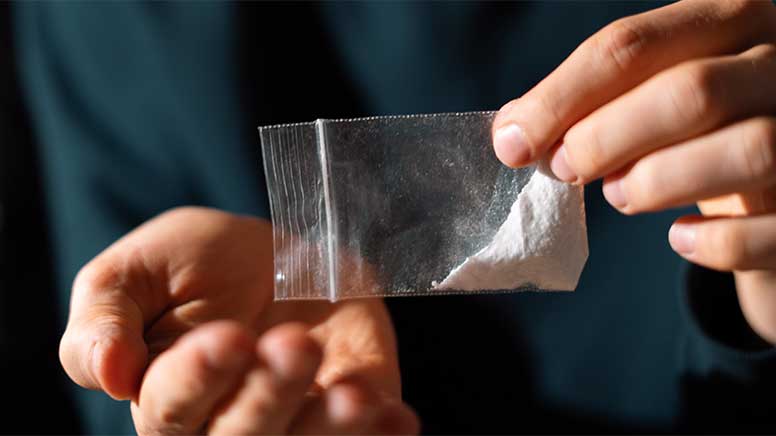Meth Overdose | Symptoms, Risk Factors, & Treatment

Medically Reviewed By: Kimberly Langdon, M.D.
A meth overdose consists of possible seizure, heart attack, and organ failure. Injecting or snorting the drug can cause a greater risk of overdose which may require a specific treatment plan.

A powerful stimulant drug, methamphetamine is sold illegally and can sometimes be referred to as “crystal meth.”
According to the United States Drug Enforcement Administration (DEA), meth is considered to be a Schedule II drug on the controlled substances list, meaning it has a high potential for abuse.
Methamphetamine is sold as a street drug, usually offered in the form of a powder. Methamphetamine is also sold in prescription drug form known as the brand name Desoxyn. However, this prescription drug is much weaker than the meth you might find from a drug dealer.
Meth can be swallowed, snorted, plugged, or smoked. Due to the harmful and dangerous side effects of methamphetamine use, those who use this drug have an increased risk of methamphetamine overdose.
Symptoms Of Meth Overdose
This dangerous drug stimulates the central nervous system (CNS) which can create a number of side effects. Even first time meth use can result in a drug overdose.
Signs of meth overdose include a number of symptoms that range in severity. According to the National Institutes of Health (NIH), some of these symptoms may include:
- extreme paranoia
- breathing difficulties
- severe stomach pain
- fluctuations heart rate
- psychosis
- high body temperature
- seizures
- stroke caused by hyperthermia
- memory loss
- high blood pressure
- extreme weight loss
- coma
Those experiencing a meth overdose may develop organ failure. Permanent damage to the kidneys can occur, such as kidney failure.
A cardiovascular event such as a heart attack may result in an overdose death. Cardiovascular events such as hypertension can also be life-threatening.
These meth overdose symptoms show how devastating the effects of meth can be when the drug is used. This type of drug use may lead to a substance use disorder or severe health problems including an overdose.
If you suspect a methamphetamine overdose has occurred, contact 911 immediately. An overdose requires immediate medical attention.
Risk Factors For Meth Overdose
According to the Substance Abuse and Mental Health Services Administration (SAMHSA), those who take meth have an increased risk of overdose due to a number of factors, including frequency of use, potency of supply, and dangerous contaminants.
Fentanyl-Laced Meth
Due to the fact that meth is sold as an illicit drug on the black market by drug dealers, no regulations are in place when the substance is prepared. Contaminants, including the dangerous opioid fentanyl, can be unknowingly added to the drug.
Polysubstance Use
If other CNS stimulants or depressants are combined with methamphetamine, the risk of overdose may be greater.
For instance, those who combine opioids, benzodiazepines, or other drugs with meth can experience life-threatening health issues such as seizure, respiratory depression, and coma.
Meth Overdose Treatment
According to the National Institute on Drug Abuse (NIDA), treating a meth overdose may consist of restoring blood flow to the brain and heart as well as treating potential organ damage. If a person develops a stroke, they may require rehabilitation.
Those who experience a heart attack may require medical observation to monitor blood flow. Treatment will begin with the area in your body that has been damaged.
If a person requires meth addiction treatment, your local Ohio healthcare provider may recommend numerous treatment programs and strategies that can help you recover from your drug addiction.
Detox
Detox is one of the most important steps in recovery. Often the first step, the detoxification process allows your body to rid itself of unwanted toxins caused by drug abuse.
Throughout this process, a medical professional will monitor your progress and assist with any withdrawal symptoms you may develop if you participated in chronic meth use.
Inpatient Addiction Treatment
As a patient in an inpatient treatment center, you receive 24/7 care. Your treatment program addresses behavioral health issues related to meth addiction with options such as group therapy, cognitive behavioral therapy, wellness activities, and mental health counseling.
To find out if our inpatient substance abuse treatment programs work for you or a loved one, please contact Ohio Recovery Center today.
- Drug Enforcement Administration — Methamphetamine https://www.dea.gov/sites/default/files/2020-06/Methamphetamine-2020_0.pdf
- National Institute on Drug Abuse — What are the Long-Term Effects of Methamphetamine Misuse? https://nida.nih.gov/publications/research-reports/methamphetamine/what-are-long-term-effects-methamphetamine-misuse
- National Institute on Drug Abuse — What is Methamphetamine? https://nida.nih.gov/publications/drugfacts/methamphetamine
- National Library of Medicine: MedlinePlus — Methamphetamine Overdose https://medlineplus.gov/ency/article/007480.htm
- Substance Abuse and Mental Health Services Administration — Know the Risks of Meth https://www.samhsa.gov/meth

